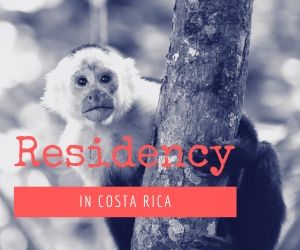An interesting article on expats working in Costa Rica was in AM Costa Rica this morning.
Quote:
For expats working here, it's a very different world
By Garland M. Baker
Special to A.M. Costa Rica
Being an important expat destination, Costa Rica offers great weather, beaches and plenty of rainforests, and it can be, bureaucracy and all, a good location for expats who want to grow their businesses. However, there is a group of expats who not only do not own businesses but also need to make ends meet. They get to know a very different kind of jungle: Costa Rican workplaces.
Common employment for expats or foreigners looking for a temporary Costa Rican experience include English teaching, sales and customer service at sportsbooks, casinos, other call centers and real estate firms. Jobs in tourism are the fewest, and they usually require applicants to speak fluent Spanish. In addition, some expats or foreigners seek to get hired or, if popular enough, get requested for cultural activities, especially in the music scene.
In many interviews with expates about their employment experiences in Costa Rica, there seems to be some common denominators in Tico workplace environments. Aiming to set the record straight – unlike many sites that sugarcoat everything about this country – the following are some of the most important ones.
Contract discrepancies. Expats who get hired in jobs whre employers do not require work permits should get paid the full amount offered during the interview. Too often companies wait until it is time to pay the first salary to fast-talk foreigners into believing they are required to pay 9 percent of their salary as government withholdings because of immigration scrutiny. This constitutes employer fraud. Employers can only deduct 9 percent of salaries from employees who are registered in the Caja Costarricense de Seguro Social.
The social security agency in Costa Rica is commonly referred to as the "Caja" That percentage goes directly to that organization. If employers are deducting the withholdings from unregistered employees, they are keeping the money, plain and simple. They cannot send those percentages to Caja because they would be questioned as to whom that money corresponds, nor will they be exempt from a hefty fine if they are caught employing illegal workers, even when deducting the monthly amount. Expats should ask about this aspect during their interviews, and address their knowledge on the matter.
Other complaints have to do with hours promised vs. hours offered. This is especially true for English teachers. Many report being promised full-time schedules and only being given a fraction of that once they sign six-month to one-year commitments with deceiving schools.
Payment irregularities. This seems to be the aspect drawing the most resentment from expats. Some state they applied for jobs that advertised salaries in dollars to then find out that their first salary was paid in colons. Even if they always had the option to quit, some of them decided to endure their jobs, always worrying about converting their monthly payments to dollars to make sure they reflected accurate exchange rates.
Payment delays are also very frequent, especially in sportbooks or casinos. Expats have reported up to a week's delay in getting their salaries, always being told bogus excuses by their employers about having problems with bank transfers. The ironic thing is that most call center employers are expats themselves, but they have adopted hora tica (Tico timing) when doing business.
Unannounced, gradual salary cutbacks have also been reported. This aspect is frequent in places where salaries are paid under the table. If management decides to start cutting back on commissions or salary amounts that were initially promised, employees have no way to legally protect themselves.
Lying about payment amounts or payment at all also seems to be common in contracts concerning the music scene. Foreign disc jockeys who are hired in local bars complain about how often they have to address problems with the amount they get paid compared to the one offered, which is also true for foreign performers. Some music concerts have been cancelled, even once the audience has arrived to the location, due to payment disagreements between foreign artists and event organizers. Fans have even vandalized facilities once they find out they are not getting their money back either. Expat disc jockeys who aim to get jobs at radio stations say it is good exposure, but forget about getting paid.
Some of them were lied to during job interviews at different stations, being told that once the ratings were received, they would sit down to discuss compensation. Instead, they were given the runarounds by employers once it was time to discuss payment and when some pressed the issue, they were magically taken off the air. Others opted for sucking up to the station and were able to get full-time administrative jobs that would give them monthly salaries ranging from only $300 to $400.
No degree recognition. Costa Rica may be the education diploma paradise for Ticos, but not for expats. Costa Ricans know the more degrees they obtain, the better they will do professionally and financially. That is why there are so many Ticos enrolled in master's degree programs and
short-term trainings that will give them some kind of certificate or diploma. Those open doors. However, expats rarely share this advantage. Expats with bachelor’s degrees do not get better salaries compared to Ticos who have no college education for call center jobs or travel agencies.
The same happens with post-graduate degrees. English teachers who have master’s degrees or Ph.D.s do not get better salaries or positions in language schools unless they have mastered Spanish as well. Ticos do not seem to recognize professional achievement unless it is spoken in their language. Most expats do not even get it until they are residents. Therefore, foreigners with higher education usually end up founding their own language schools in order to put their degrees to good use.
Crazy work ethics. Although this aspect can be true of any office around the world, at least it is true that in Costa Rica it is the one thing you can always count on in the workplace: From increasing daily tasks with no corresponding raise to blatant favoritism reflected in treatment and unjustified raises from management to certain employees, Expats describe Tico office environments as an indoor Wild Wild West. Even though labor code violations are penalized, and the court usually rules in favor of the victim, work ethics that cannot be evidenced in paper are hard to prove in court. There are many cases of sexual harassment, sexism and verbal abuse that go unreported as well.
Concerning the Costa Rican music scene, anarchy seems to be the rule. Many expat and visiting musicians claim that event organizers, bar owners and promoters leave everything for the last minute, provoking embarrassing interruptions or performance delays due to their negligence concerning sound or equipment quality.
No professionalism. Costa Ricans holding an authority position anywhere seem to think that supervising or managing equals patronizing. Tico employees appear used to being disrespected by their employers or supervisors, but foreigners are not. However, Ticos who are not internationally educated treat foreign employees the same way they treat their own. They could have older expats under them, and they still scold them as if they were Ch*ldren. What they also ignore is that most foreigners will hold their own and put them in their place, which sometimes has resulted in unfair firings, since disrespectful Tico supervisors are usually backed up by companies due to their opportunistic skills. Some expat supervisors are not exempt from being jerks, but they usually patronize Ticos, not fellow expats.
Physical contact and no personal space. Costa Ricans have a very physical way of relating to others. Expats often complain about having to kiss Tico co-workers of the opposite sex on the cheek every morning, even the ones they do not like, as Ticos do among themselves. Many expats also feel Ticos have no sense of personal space, since they usually get too close to walk by or talk to them.
No political correctness. Ticos do not know what the term politically correct means. There is no equivalent for that phrase in Spanish either. Costa Ricans feel free to make ignorant racist, sexist, homophobic and ageist jokes in the workplace, disregarding the feelings of those around them. They also feel free to openly discriminate against others based on race, ethnicity or class. Many expats still cannot get over that aspect, especially because it is legally and culturally allowed.
Moving to any foreign country will always need some kind of adjustment, but most relevant information about what to really expect in Costa Rica is unavailable, and most Ticos do not want to have certain aspects of their culture revealed abroad. They need to keep Costa Rica’s reputation intact, and so far it has been working. Until now.
_________________

Pura Vida

Only Irish coffee provides in a single glass all four
essential food groups:
alcohol, caffeine, sugar and fat.
Alex Levine











